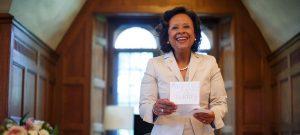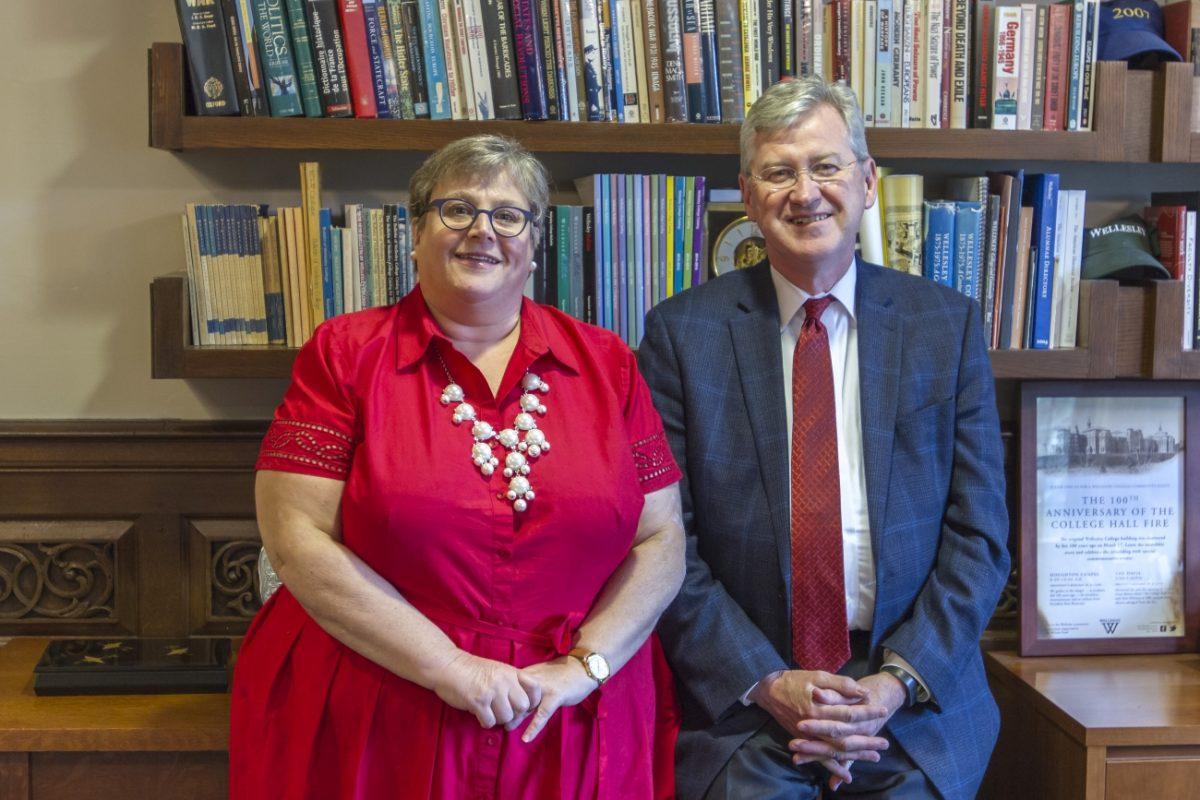On Nov. 26, President Paula Johnson sent an email to the campus community titled “College Announcement: Identifying Wellesley’s Institutional Values.” According to the email, Wellesley’s Accreditation Steering Committee has “identified a need to review, reconsider and hone the expressed values of Wellesley College.” Johnson attached a Google form to the email and asked members of the college community to answer the question, “What aspect of Wellesley has had the most powerful effect on you?”
Wellesley is in the middle of the accreditation process, which takes place every ten years. Wellesley’s Accreditation Committee is responsible for completing the self-study required by the New England Commission on Higher Education (CIHE) for accreditation. The steering committee has completed a draft of the self-study, which was open to members of the Wellesley community for feedback from Nov. 14 to Nov. 30. The accreditation process will conclude this March after a team comprised of individuals from outside institutions visits Wellesley to discuss the findings of the self-study with students, faculty and staff. Members of the team will then produce a report based on the findings of the self-study and conversations they have with members of the College community.
Provost and Dean of the College Andrew Shennan is one of the faculty members on the College’s Accreditation Steering Committee. This is his third time being involved with the accreditation process at Wellesley and says it is “a great opportunity for the leadership and the different constituents of the College to evaluate what we are doing well and what we need to concentrate on moving forward.” Shennan added, “Every institution, however great, can always be better. The value of accreditation is that it allows us to reflect on Wellesley’s past as well as its future.”

The CIHE requires institutions due for accreditation to evaluate themselves on nine standards in their self-studies. These include Mission and Purposes, Planning and Evaluation, Organization and Governance, the Academic Program, Students, Teaching, Learning, and Scholarship, Institutional Resources, Educational Effectiveness, and Integrity, Transparency, and Public Disclosure.
Bryan Burns is an associate professor of classical studies and a co-chair of Wellesley’s Accreditation Steering Committee. He said in a written statement to The Wellesley News that the committee found a need for the College to identify its institutional values when its members considered the “Mission and Purposes” section of the self-study.
Burns said, “In the various discussions we organized last year, we noted that although everybody can repeat [Wellesley’s] mission, ‘to provide an excellent liberal arts education for women who will make a difference in the world,’ there is a broad range of feelings about what these words mean.” He added that the “Mission and Purposes” section of the self-study can “offer context for how we as a community and an institution enact the mission, with more detailed language about the nature of a liberal arts education, access and diversity, and empowerment.”
Shennan shared that the steering committee originally looked at the “Mission and Values” statement posted on Wellesley’s website when they began thinking about the “Mission and Purposes” standard of the self-study. However, the statement online was written several years ago, and members of the steering committee felt that some of its language and ideas were dated. He gave the following examples: “I would think, for example, that the way the College describes diversity and inclusion in the current Mission and Purpose Statement isn’t necessarily how we would describe them today. It could also be that we talk about things like leadership, community and service differently.”
He said, “Everyone on the committee felt that we needed to look at [the statement] again and see if that way of describing our values is how the community would describe them today. That is what the letter President Johnson sent out and what this process is intended to do. To basically just ask how we would define the values the college has today.”
The Google form President Johnson sent to the campus community closed on Nov. 30. This week, the steering committee will review the responses from students, faculty and staff. Burns said that in the meantime, members of the Wellesley community can look forward to more discussions about accreditation and Wellesley’s institutional values in the spring semester.






